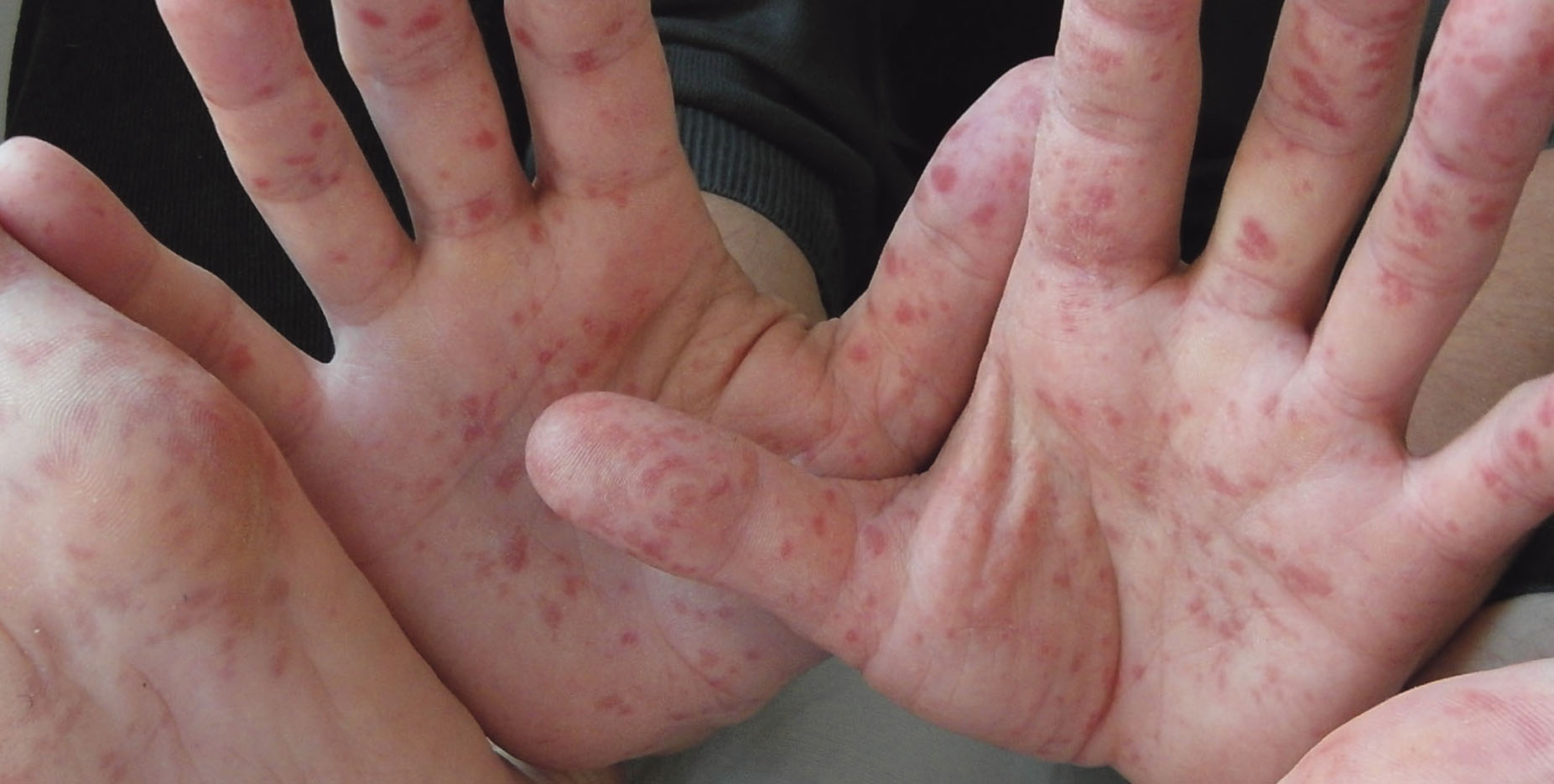
There has been a rise in cases of a highly infectious childhood disease called Hand, Foot, and Mouth Disease (HFMD), characterised by a sore throat, fever, and painful sores in and around the mouth.
A rash and painful blisters may also appear on the palms of the hands, soles of the feet, and other body parts. The disease, which can sometimes be referred to by its causative agents, such as Coxsackievirus infection, mostly affects children under 10, but older children and adults can also become infected.
The NHS describes the disease as a common infectious illness in children and says that anyone infected should stay away from nursery or school while they have symptoms.
Parents have been raising the alarm over a recent surge in cases. Being highly infectious, HFMD can spread quickly amongst children in a class, nursery, or playgroup. Whilst this disease can be uncomfortable and make children feel ill, it is usually a short-lived infection and generally clears up within seven to ten days.
HFMD is caused by a group of viruses and can be transmitted from person to person through close contact, coughs and sneezes, and touching objects that have been contaminated with the virus.
To reduce the spread, it is important to keep children who are sick at home until symptoms have gone. In addition, good hygiene practices such as frequent handwashing, disposing of used tissues, and cleaning of surfaces and objects that may have become contaminated.
There is no specific treatment for HMFD, and the disease will usually clear up on its own, but paracetamol and ibuprofen can be used to reduce fevers and help make the patients more comfortable.
Staying hydrated with cool drinks can also help, but it is best to avoid acidic drinks like orange juice or hot drinks, as this may irritate any blisters in or around the mouth. If there are blisters on the hands and feet, care should be taken when washing, using lukewarm water and gently patting the area dry to avoid irritating or bursting the blisters. Allow the blister to dry naturally over time.
If you suspect your child has HFMD, phone your GP surgery for advice or call NHS 111.
Photo: Lesions caused by HFMD (Credit: KlatschmohnAcker/WikiMedia)